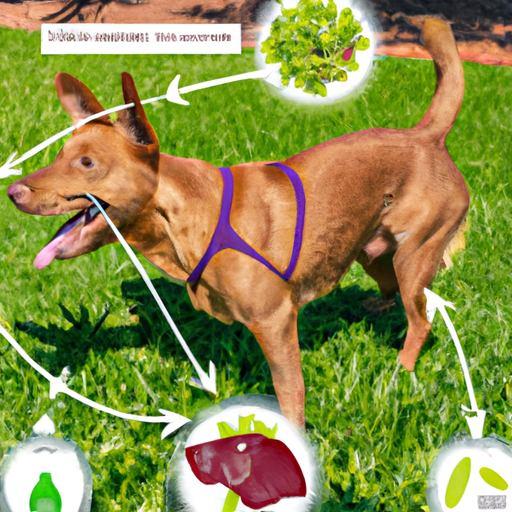Your furry friend is more than just a pet, it’s a family member. Therefore, it’s only natural that you want to ensure they’re in the best health possible. One area that often gets overlooked until there’s an issue is your dog’s liver health. Elevated liver enzymes in dogs can be a sign of a health problem, but there are ways to help your canine buddy get back on track.
Table of Contents
- Understanding Liver Enzymes in Dogs
- Causes of Elevated Liver Enzymes
- Symptoms of High Liver Enzymes
- How to Lower Liver Enzymes
- Natural Remedies for Liver Health
- Diet Recommendations
- Frequently Asked Questions
Key Takeaways
- Understanding liver enzymes and their role in your dog’s health is essential.
- Several causes can lead to elevated liver enzymes, including toxins, diseases, and medications.
- Recognizing the symptoms of high liver enzymes can lead to early detection and treatment.
- Dietary changes, natural remedies, and vet-prescribed medications can help lower liver enzymes.
Understanding Liver Enzymes in Dogs
Liver enzymes are proteins that speed up specific chemical reactions in the body. These enzymes are crucial for your dog’s health, aiding in digestion and removing toxins from the body. However, when these enzymes are too high, it may indicate a problem.
Causes of Elevated Liver Enzymes
Several factors can lead to elevated liver enzymes. Age, breed, and gender can all play a role, but some of the most common causes include exposure to toxins, certain medications, diseases like hepatitis or cancer, and even obesity. For a more detailed look at these causes, check out this article.
Symptoms of High Liver Enzymes
It’s essential to know the signs of elevated liver enzymes in dogs. Symptoms might include lack of energy, loss of appetite, weight loss, vomiting, diarrhea, and jaundice. If you notice any of these signs, a visit to the vet is in order. They can perform a blood test to check your dog’s liver enzyme levels.
How to Lower Liver Enzymes
So, what can you do if your dog’s liver enzymes are high? Here are some strategies:
1. Medication
Vets may prescribe medications to help manage liver inflammation and promote liver health. It’s crucial to follow the vet’s instructions on dosage and administration.
2. Dietary Changes
A diet rich in antioxidants, vitamins, and minerals can help promote liver health. More on this in the next section.
3. Regular Exercise
Keeping your dog active can help maintain a healthy weight, which in turn can help promote liver health.
Natural Remedies for Liver Health
Natural remedies can also help support your dog’s liver health. Milk Thistle, for instance, is known for its liver-boosting properties and can be found as a supplement in many pet stores. Another is SAMe (S-Adenosylmethionine), a naturally occurring compound in the body that boosts liver function. Always consult your vet before starting any new supplement regimen for your pet.
Diet Recommendations
A diet full of antioxidants can help lower liver enzymes. Foods like blueberries, cranberries, and spinach are rich in antioxidants and can be a great addition to your dog’s diet. Also, a diet low in fats and high in fiber can help maintain liver health. Some recommended foods include lean meats, sweet potatoes, and carrots. For more information on a liver-friendly diet for dogs, click here.
Frequently Asked Questions
-
What are normal liver enzyme levels in dogs?
Normal levels can vary, so it’s best to check with your vet. -
Can elevated liver enzymes be temporary?
Yes, in some cases, elevated liver enzymes can be a temporary issue due to medication or a short-term illness. -
Will dietary changes alone lower my dog’s liver enzymes?
Dietary changes can help, but it’s essential to consult with your vet to determine the best course of action.
As a dog owner, it’s essential to pay attention to your dog’s health and well-being. By keeping an eye out for symptoms of elevated liver enzymes and taking steps to lower them, you can help ensure your four-legged friend lives a long, healthy life. For more information on dog health and wellness, check out these articles on OneTopDog, dog nutrition, and understanding blood tests.



